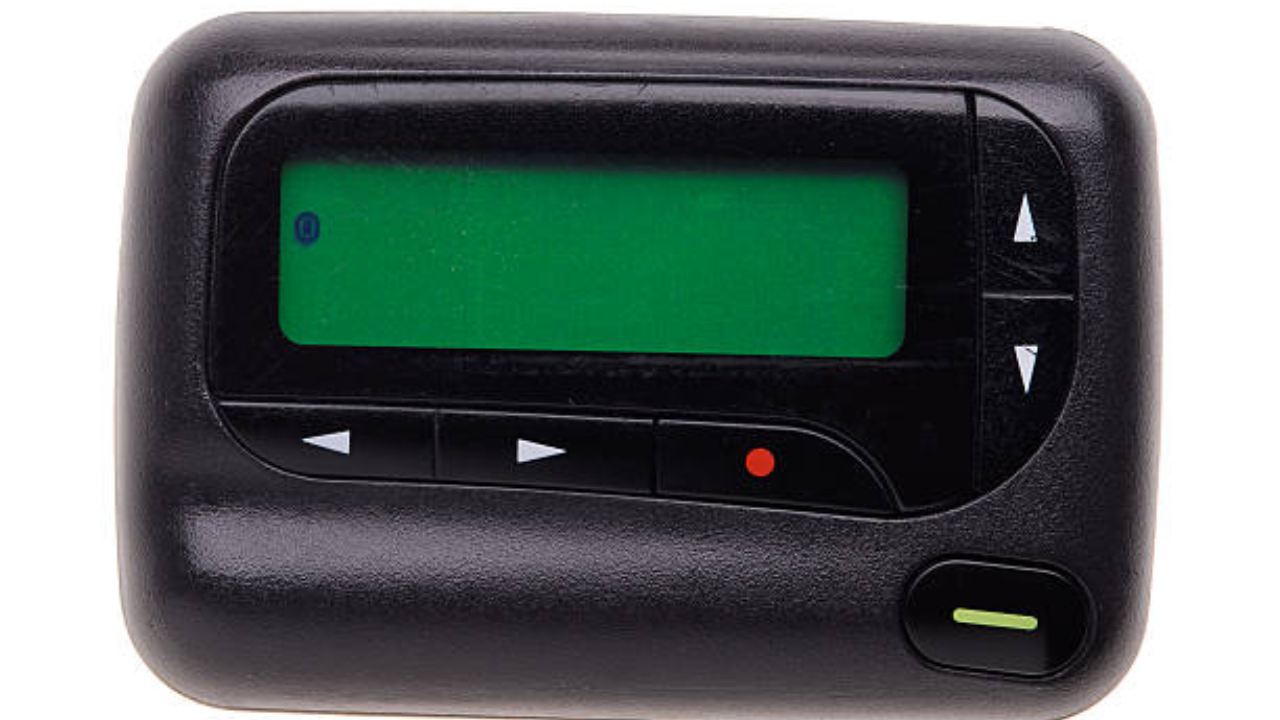
A series of devastating explosions involving wireless devices used by Hezbollah members has claimed at least nine lives and injured thousands in Lebanon. Lebanese security officials have accused Israel's Mossad spy agency of planting explosives inside 5,000 Taiwan-made pagers, or "beepers," that were ordered by the Iran-backed militant group months ago.
What are pagers?
Pagers, once a much-used communication tool, are small portable devices that receive short messages via radio waves. They were widely used before the advent of mobile phones, particularly by professionals requiring immediate notifications. While pagers have largely become outdated in recent years, their role in the deadly Lebanese incidents has brought limelight to this once-popular technology.How Israel Planned Synchronised Detonations In Lebanon With Its Latest Weapon — Pagers
At least nine people were killed and more than 2,800 others, including Iran's Ambassador, injured in Lebanon in a synchronised detonation of pagers targeting US-designated terror group Hezbollah. The explosives, it has emerged, were planted by Israel's Mossad spy agency months before Tuesday's detonations.
Multiple reports, citing senior Lebanese security sources, have claimed that Mossad planted a small amount of explosives inside 5,000 Taiwan-made pagers ordered by Lebanese militant group Hezbollah five months before the detonations.
Pagers, wireless communication devices used by members of the Hezbollah exploded simultaneously across Lebanon and parts of Syria at around 3:30 pm local time in Lebanon (6 pm IST) Tuesday.
News agency Reuters, quoting a senior Lebanese security source, reported that the pagers exploded when a coded message was sent to them, simultaneously activating the explosives.
"Mossad injected a board inside the device that has explosive material that receives a code. It's very hard to detect it through any means. Even with any device or scanner," the source told Reuters.
The Iran-backed militant group had ordered 5,000 pagers from Taiwan-based manufacturer Gold Apollo. The pagers were delivered between April and May. A security source identified the model of one exploded pager as the AP924 variant.
According to Sky News Arabia, the Israeli spy agency placed a quantity of PETN, a highly explosive material, on the batteries of the devices, and detonated them by raising the temperature of the batteries from afar.
Al Jazeera channel reported that the weight of the explosive placed in each device was up to 3 grams.
Israeli authorities or the army have not commented on the blasts and subsequent allegations.
Hezbollah, which is fighting a war with Israel since Hamas's October 7 attack, are known to be using pagers for communication in an attempt to evade Israeli location tracking.
Israel has allegedly used similar tactics in the past as well. According to a former US National Security Agency intelligence analyst, David Kennedy, Israel's intelligence agency Shin Bet allegedly planted 15 grams of RDX explosive in a mobile phone to eliminate Hamas leader Yahya Ayyash in 1996. The device detonated when he made a call to his father, killing Ayyash at the spot.

